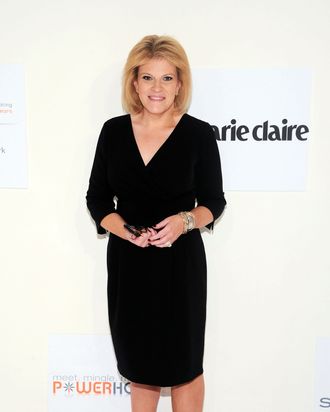
One December day in 2011, Good Morning America contributor Tory Johnson was called to the office of Barbara Fedida, the highest-ranking woman at ABC. She suspected the one-on-one meeting, Johnson’s first, would be about her weight. And it was! Not that anyone ever said the word “weight.”
Wearing a slimming all-black outfit, Johnson met Fedida in the cafeteria, where she passed over muffins, cereal, eggs, and bacon in favor of a bottle of water. After an hour of small talk, Fedida said, “You don’t look as good as you could; I don’t think your clothing does you any favors,” and offered to connect her with a wardrobe stylist. When Johnson agreed, Fedida added (apropos of nothing, in Johnson’s telling), “I feel much better when I work out.” Then they said good-bye. But Johnson got the message. She writes in the New York Post:
Not once did she call me fat, say I had to lose weight, or hint that my job was in jeopardy. The words “fat,” “overweight” or “obese” never came up. But what I did hear was, “Lose weight, or lose your job.”
How lucky, for HR departments, that women have so thoroughly internalized what’s wrong with their bodies that bosses needn’t ever explicitly discriminate against anyone. A passing reference to clothing and exercise is enough signal to women they will get fired if they don’t lose weight. So Johnson struck out on her own, defying television norms and learning to love herself in her own skin. JK! She lost 72 pounds, wrote a book called The Shift: How I Finally Lost Weight and Discovered a Happier Life, and dedicated it to Fedida. “Since then, friends have said they wish their bosses would tell them to lose weight because so far they haven’t listened to anyone else,” she says.




